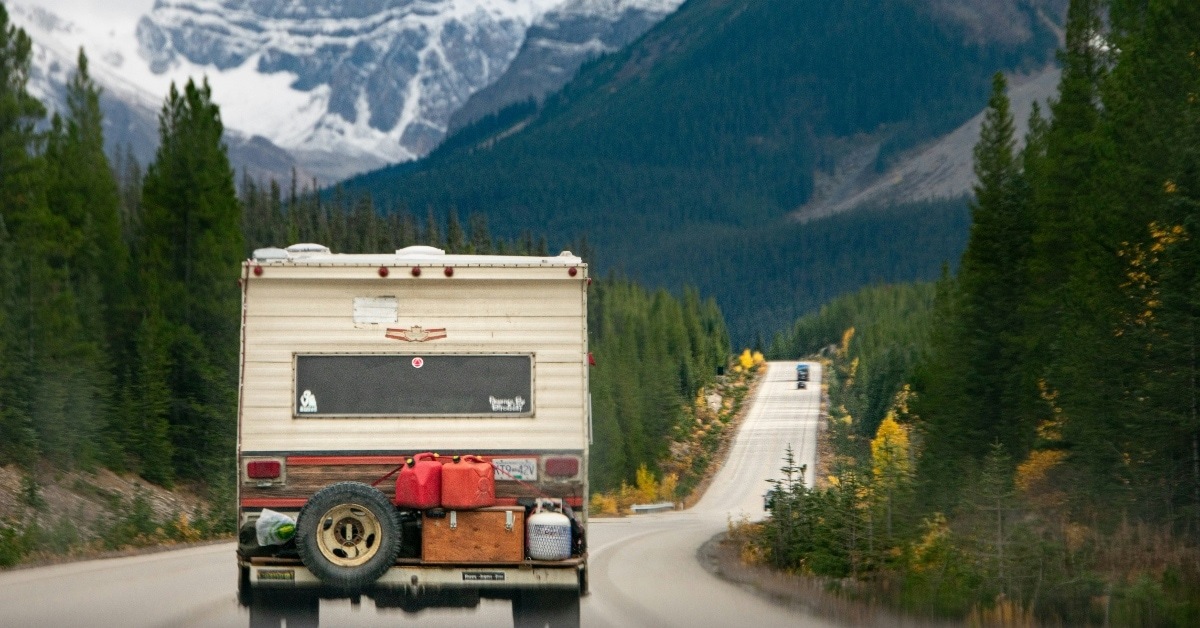Don’t RV-gret It! Smart Things to Consider with RV Travel
Dreaming of open roads, stunning landscapes, and the freedom to explore at your own pace? RV travel offers an incredible way to see the world, combining the comforts of home with the excitement of an adventure. It’s perfect for those who love flexibility, outdoor experiences, and the ability to change their scenery whenever the mood [...] Read More... from Don’t RV-gret It! Smart Things to Consider with RV Travel The post Don’t RV-gret It! Smart Things to Consider with RV Travel appeared first on LBS.


Dreaming of open roads, stunning landscapes, and the freedom to explore at your own pace? RV travel offers an incredible way to see the world, combining the comforts of home with the excitement of an adventure. It’s perfect for those who love flexibility, outdoor experiences, and the ability to change their scenery whenever the mood strikes. However, diving into RV life, especially for the first time, involves more than just packing a suitcase and hitting the highway. There are many essential things to consider when traveling by RV to ensure your journey is smooth, safe, and truly unforgettable.
Whether renting for a weekend getaway or planning a cross-country epic, a little preparation goes a long way. Understanding the nuances of RV types, budgeting for unexpected costs, and navigating the practicalities of life on wheels can make all the difference. This article will break down the crucial considerations when traveling in RVs, giving first-timers the confidence to embark on their mobile adventure.
Your Road Trip Checklist: Key Things to Consider with RV Travel
Before you fuel up and set off, review some vital points that will help you prepare for a successful RV experience.
Choosing Your Ride
Not all RVs are created equal, and picking the right one is crucial. You’ll find various types, including motorhomes (Class A, B, and C), travel trailers, and pop-up campers. Class A motorhomes are like buses — large and luxurious. Class B vans are smaller and easier to drive. Class C motorhomes offer a good balance. Travel trailers need a separate tow vehicle. Consider your group size, driving comfort, and budget when deciding. Renting different types for shorter trips can help you find your perfect match before committing to a purchase.
Budgeting for the Journey
While RV travel can be cost-effective, it has its unique expenses. Fuel will likely be your most significant variable cost, especially with larger rigs. RVs get fewer miles per gallon than cars, so factor that in. Campground fees can range from free (boondocking on public lands) to over $100 per night for full-service resorts. Don’t forget maintenance costs, insurance, and unexpected repairs. Groceries might be cheaper if you cook, but eating out adds up. Plan for tolls, attractions, and activities too.
Route & Flexibility
One of the joys of RVing is flexibility, but a basic route plan is still essential. Could you identify your must-see destinations? Research RV-friendly roads, as some routes have height or weight restrictions. Allow extra travel time, as RVs move more slowly. Consider booking popular campgrounds in advance, especially during peak season or at national parks. Embrace spontaneity, but have backup plans. This balance prevents stress and allows for unexpected discoveries.
RV-Friendly Destinations

Not all places welcome RVs equally. National and State Parks are generally RV-friendly, offering hookups and dump stations. Many private campgrounds cater specifically to RVs, providing amenities like pools, laundry, and Wi-Fi. Look for RV parks with good reviews regarding space and services. Avoid squeezing large rigs into small town centers or residential areas without prior research. Websites and apps dedicated to RV travel can help you find suitable spots.
Safety First
Safety is paramount, especially for first-timers. Before hitting the road, thoroughly check your RV’s tires, fluid levels, and lights. Understand how to hook up and unhook your RV properly. Learn about braking distances, as RVs take longer to stop. Be mindful of strong winds, especially with larger vehicles. Secure all loose items inside before driving to prevent shifting. Familiarize yourself with emergency procedures and carry a basic toolkit. Consider taking a practice drive in a less busy area.
What First-Timers Should Know
RVing has a learning curve. You must learn about managing fresh, gray, and black water tanks. Understanding electrical hookups (30-amp vs. 50-amp) is also key. Learn to level your RV for comfort and proper appliance function. Pack smart, utilizing storage creatively. Most importantly, embrace the unexpected; things will go wrong, but they often become the best stories. Connect with other RVers; they’re a friendly, helpful community.
Embark on Your Adventure: The Payoff of Things to Consider with RV Travel

Considering these crucial things to consider with RV travel, you’re setting yourself up for an enriching experience. The preparation might seem extensive initially, but each step builds confidence and ensures you can relax once you’re on the open road. The freedom to wake up to a new view every day, to cook your meals surrounded by nature, and to create a custom itinerary is unparalleled.
So, gather your notes, research, and prepare for an adventure of a lifetime. RV travel offers a unique blend of comfort and exploration that few other forms of travel can match. With the proper planning and a readiness to embrace the journey, your RV dreams can undoubtedly become a reality. Happy travels, and enjoy the open road!
Do you know if our list of things to consider when traveling in an RV prepared you for the open road? Let us know in the comments.
The post Don’t RV-gret It! Smart Things to Consider with RV Travel appeared first on LBS.
Share
What's Your Reaction?
 Like
0
Like
0
 Dislike
0
Dislike
0
 Love
0
Love
0
 Funny
0
Funny
0
 Angry
0
Angry
0
 Sad
0
Sad
0
 Wow
0
Wow
0














![Winner’s List: 68th Annual GRAMMY Awards [Full]](https://thatgrapejuice.net/wp-content/uploads/2026/02/2026-thatgrapejuice-68th-annual-grammy-winners-lady-gaga-kendrick-lamar.jpg)


